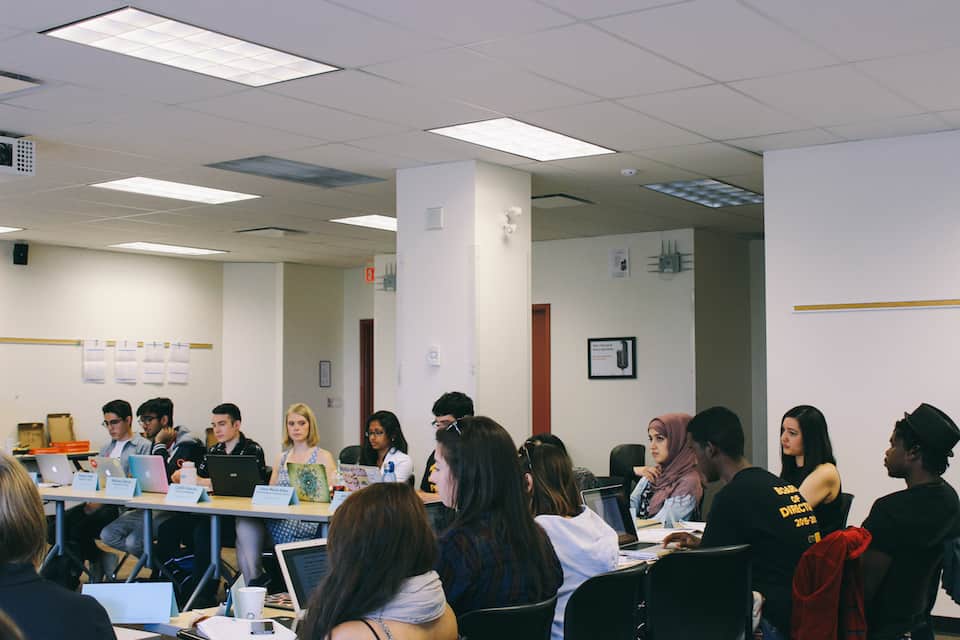At a special general meeting this fall, the University of Toronto Student Union (UTSU) will give students the opportunity to vote on supporting the controversial Boycott Divestment Sanctions (BDS) movement against Israel. The BDS movement, started in 2004, promotes the boycott and sanctioning of Israeli products and institutions in an attempt to “isolate Israel.”
To begin, the BDS movement is at best, misguided. BDS reduces the Israeli-Palestinian conflict into a simple story of the victim and the villain. As Columbia Professor Todd Gittlin writes, BDS “claims that there is only one story to be told in the Middle Eastern tragedy.”
What’s more, BDS makes no clear distinction between targeting the Israeli settlements and Israeli sovereign territory. Targeting the settlements – that is, occupied Palestinian territory in the West Bank and Gaza – should be a primary focus of the campaign. Instead, the settlements are merely a minor segment in the movement’s targeting of Israel as a whole.
If it wants to be successful, BDS should only target those individuals who encourage occupation and don’t want to see Palestinian statehood achieved. Instead, all Israeli citizens are targeted, delegitimizing the efforts being made by those Israelis who do want to see a two-state solution.
This is not to mention that the BDS movement is harmful to many Palestinians, as it decreases their ability to maintain contacts with Israelis for business and trade. The Palestinian Authority (PA), a political group that exercises influence in the West Bank, does not support BDS.
In fact, Palestinian Mahmoud Ibrahim Al-Shushe is quoted as saying, “Because [of] the boycott, the moukata’a, has become the focus of the fight against the occupation, the PA feels forced to support it, even though they know that so many Palestinians would starve without work with Israel.” While Palestinians clearly shouldn’t have to live under occupation, they have an intertwined future with Israel when it comes to trade and business, and BDS is jeopardizing that.
Perhaps more importantly though, is that the UTSU is potentially offering its support to the BDS at all. Regardless of whether you believe BDS is right or wrong, the UTSU should not be backing such divisive political campaigns.
Inevitably, any advocacy regarding the Israeli-Palestinian relationship opens up the historical, emotionally charged, and nationalistic debate over land claims and sovereignty. Does the UTSU, a student government that aims to maintain a “safe space”, want to alienate a portion of the student body and spark arguments between others?
Pertinent examples would say no. In March, McGill university students voted against supporting the BDS movement, citing “anti-Israeli rhetoric”’ and an apprehension towards monopolizing the information regarding the Israel-Palestine debate. Liberal leader Justin Trudeau has also joined the criticism, tweeting “the BDS movement, like Israeli apartheid week, has no place on Canadian campuses.”
Some may counter this argument by asking why should the UTSU be openly supporting any political issues at all, such as the TA strike or #BlackLivesMatter protests?
The answer is not a simple one. Taking unilateral stances or remaining neutral on all global issues, as a politically minded student body, is not likely. As such, the best way to determine if an issue merits support should be based on its direct effect on the UTSU and students at U of T.
When it comes to divisive issues, such as the BDS movement, it seems imprudent to put an issue on the agenda that doesn’t immediately affect a majority of students, especially when the UTSU is facing immediate problems of its own. On the other hand, issues such as anti-black racism and the economically precarious situation of graduate students seem much closer to home, particularly when the latter detrimentally affects the learning conditions for undergraduate students.
There are numerous ways for students to get involved in political issues. University is all about learning, understanding, and formulating our own opinions in environments that foster open dialogue rather than imposing viewpoints. Voting no to BDS will ensure this standard is maintained.
Tara Moulson is a second–year student at Victoria College, studying history and European studies.


